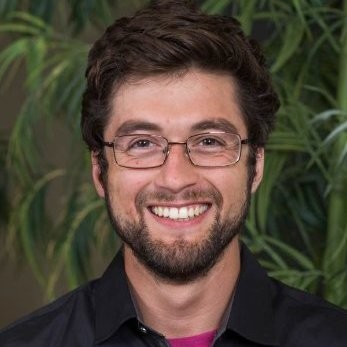12 Must-Watch Cybersecurity TED Talks

From motherhood to extraterrestrial beings, the scope of topics analyzed in TED Talks is wide-ranging and far-reaching.
If you want to learn about artificial intelligence, you can do so via a TED Talk. Curious about what it’s like to be a prisoner in North Korea? There’s a TED Talk for that. Concerned about gentrification? You can tackle that subject through a TED Talk.
Another area where TED has got you covered? Cybersecurity. Mass surveillance, state-sanctioned hacking, and privacy are just a sample of cybersecurity-related ideas that have been fleshed out via TED Talks.
The Top Ted Talks on Cybersecurity
To make it easy for you, we watched and sifted through dozens of cybersecurity TED Talks, picked the 12 most intriguing, and assembled them in one convenient place.
All you need to do is press play on the video, get comfortable, and absorb the information that’s being communicated.
The 1s and 0s behind cyber warfare
Cybersecurity researcher Chris Domas recounts how a 30-hour session in the lab spent deciphering a binary code led to an epiphany about a better method for humans to process that kind of data. Domas breaks down how the act of translating binary information into a visual abstraction can save researchers tons of time—and potentially save lives.
State sanctioned hacking – the elephant in the room
Cyberdefense professional Frank Heidt offers a solemn synopsis of China’s investment into cyberespionage and why such a stance should keep Americans vigilant. The talk briefly recaps China’s rapid economic growth and delves into the broader reasons the country decided to harness the power of hackers against U.S. government and businesses. Cybersecurity professionals who want more color on the origins of the cyberwar being waged by China should watch this talk.
How the IoT is making cybercrime investigation easier
You may have heard about the Amazon Echo that was at the center of a 2015 murder case in Arkansas and how the smart-home device was viewed as a potential witness in the investigation. In this TEDx talk, digital forensic expert Jonathan Rajewski expounds on the implications of IoT devices in solving crimes. Rajewski lays out how the data generated from IoT gadgets can steer criminal investigations and create a digital timeline that can help exonerate—or implicate—a person accused of wrongdoing.
Your human firewall—the answer to the cybersecurity problem
Most technology users invest in a traditional firewall, but Rob May argues that individuals and organizations need to step beyond that to guard against cyberattacks. Instead, they need to build up their own “human firewall” to effectively protect themselves, according to May. The cybersecurity expert contends that people are too carefree when it comes to their personal information and that the biggest line of defense against cyberthreats is people themselves. “We have to trust less, we have to talk to our colleagues, we have to educate our children and teach them to be skeptical, teach them not to be so trusting,” he said.
(Of course, in addition to being personally cautious, it’s also imperative to make sure your software is up to date. Read Springboard’s blog post on software updates you need to keep your information safe.)
Where is cybercrime really coming from?
Cybercrime is a lucrative business and security expert Caleb Barlow asserts that this economic reality can change—as long as organizations are willing to share their information. In this talk, Barlow provides an overview of the dark web marketplace and also issues a call to action to organizations and companies: Start sharing your threat intelligence data with each other. When companies are attacked, they far too often keep that information secret. That thinking needs to be upended, Barlow says. “The bad guys are moving fast; we’ve got to move faster,” said Barlow, a vice president at IBM Security. “And the best way to do that is to open up and share data on what’s happening.”
Wiretapping the Secret Service can be easy and fun
Bryan Seely wiretapped the Secret Service in 2014 and lived to tell the tale at a TEDx event in Kirkland, Washington. The hacker and security expert divulges the details of how he tapped the phones of the Secret Service using Google Maps and then turned himself into the authorities. In this 2015 talk, Seely imparts eye-opening insight on what he believed at the time to be a serious shortcoming of the search engine.
How (and why) Russia hacked the U.S. election
Cyberspace analyst Laura Galante examines the Russian influences at work in the 2016 U.S. presidential election, diving into how state-sponsored hackers stole private information and later leaked it online to sway American public opinion. Galante breaks down how Russia’s part in the attacks was able to slip under the radar and implores the audience to critically assess the source and motive behind leaked documents or hacked emails—not just the contents.
Why privacy matters
“I have nothing to hide, so I have no reason to fear the government surveilling me” is a common refrain of surveillance proponents. In this 2014 TED Talk, Glenn Greenwald seeks to delegitimize this argument, opining that mass surveillance can fundamentally change how a society behaves. Greenwald, a journalist whose work helped break the 2013 mass surveillance stories published in The Guardian, posits that human freedom is inherently linked with privacy. He makes the case that government monitoring can lead to conformism, obedience, and compliance among those being watched. Watch the talk for a broader discussion on privacy, and then check out Springboard’s blog post on the topic.
Cracking Stuxnet, a 21st-century cyber weapon
Control system security consultant Ralph Langner gives a breakdown of how he and his team solved the enigma of the terrifying, malicious computer virus Stuxnet. While this talk is a little dated—Langner presented it in 2011, a year after Stuxnet was discovered—it provides illuminating insight into the steps Langner and his team took to find the worm’s purpose. This is a fascinating talk for those cybersecurity professionals who are interested in cyberforensics or want a deeper dive into what Langner describes as a “cyberweapon of mass destruction.”
Read More: What Does a Cybersecurity Analyst Do?
Fighting viruses, defending the net
Commemorating the 25th anniversary of the first PC virus ever detected, this 2011 TED Talk covers the evolution of this computer bug from the late 1980s, when worms lurked on infected floppy disks, to its more current and menacing form, now associated with espionage and elaborate criminal organizations. With humor and wit, cybersecurity expert and influencer Mikko Hypponen provides an informative overview of how these viruses morphed throughout the years and his perspective on the actions government should take to combat them.
You can read more about Hypponen and other cybersecurity influencers here.
The Internet could crash. We need a Plan B.
As more of our devices and machines become linked to or depend on the internet, the prospect that some seismic event could shut the web down is terrifying. Inventor and entrepreneur Danny Hillis explores the possibility of the internet going bust, and advocates for creating an alternative system to keep things running in the interim if it does. His talk also provides a riveting glimpse into the early days of the internet.
Why good hackers make good citizens
In a speech that seeks to break down the negative stereotypes that often beset hackers, Catherine Bracy introduces the concept of civic hacking and details how applying the principles of hacking to civic engagement can yield innovative solutions to government problems. Bracy, now co-founder and executive director at the TechEquity Collaborative, gives three examples of civic hacking in action and urges the audience to get involved. If you have a family member or friend who thinks all hackers are teens partaking in nefarious computer activity in their parents’ basement, this would be a good TED Talk to watch with them.
Get To Know Other Cybersecurity Students
Dipen Patel
Cybersecurity Analyst at Accenture
Rafael Ayala
Mergers And Acquisitions at Autodesk
Dylan Wood
Cybersecurity Career Track Student at Springboard
This post was written by Melanie Lawder. Melanie is a Milwaukee-based freelance writer. She has reported for publications like the Milwaukee Business Journal and the Wausau Daily Herald. Follow her on Twitter @mel_lawder.
Since you’re here…
There are hundreds of thousands of vacant cybersecurity jobs, and one of them has your name on it. You can enter the industry in 6 months flat with our Cybersecurity Course. We’ve helped over 10,000 students make huge career changes with our fully flexible mentor-led bootcamps. Explore our free cybersecurity curriculum today to start your career switch story.









